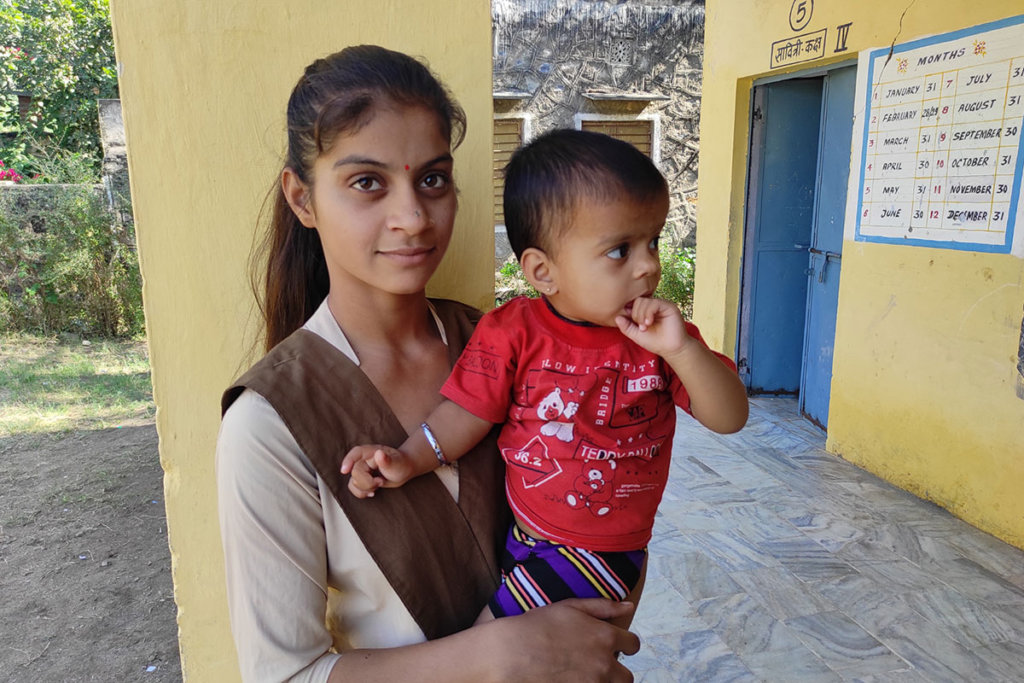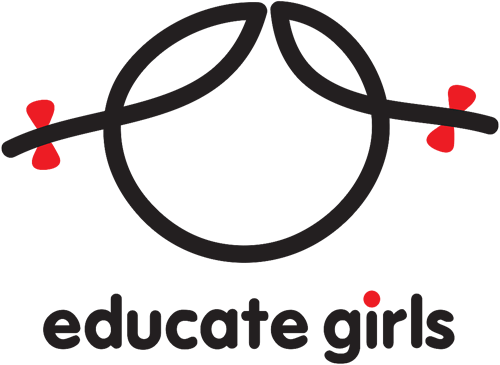Financial independence gives an opportunity to live a life of choice. Especially for women who are questioned for their choices and are forced to live a dependent life. Also, when a woman earns and makes even a little money, she puts 90% of her earnings back into her family. Comparatively, on average, a man utilizes only 30-40% of his earnings for his family. Now imagine what an educate Girls & woman can do!
UNESCO shares that girls’ wages later in life can go up by 20% by a single year of primary education. When girls are educated, as women they earn better. This not only improves the economic condition of their household but also contributes to the total economic growth of the nation as well as the world.
Let’s trace the story of Kalpana Saroj, CEO of Kamani Tubes, a $112 million company. She is called the ‘original slumdog millionaire of India’, and was also awarded the Padma Shri (fourth-highest civilian award of the Republic of India) in 2013.
Kalpana comes from a small Dalit village in Maharashtra, India. Her family allowed her to complete her school but forced her to get married at the age of 16. Unfortunately, she got married into an abusive family. Knowing her situation, her father supported Kalpana and brought her home. Her turmoil didn’t end here. She was constantly being blamed and tortured by the villagers back home for her failed marriage.
One day Kalpana decided to build a better life for herself and took a bold decision of moving to Mumbai to start a furniture business. With all her hard work and efforts, she not only supported her family financially but also built an empire for herself.
Kalpana’s story is an inspiration for all of us. But unfortunately, in many marginalized countries, adolescent girls rarely complete their primary education. In today’s blog, we will share the common trends in education & livelihoods for marginalized adolescent girls to establish the role of education in raising a financially independent woman.
1. Unpaid Domestic Work Often Hinders Girls’ Education
According to ResearchGate, on average, 45% of adolescent girls between the ages of 5 and 11 undertake domestic chores for at least one hour per week. This time-consuming unpaid domestic work reduces their attendance at school and also eats away their time to study at home. Burdened by household responsibilities, girls start missing school and many times also end up dropping out of school altogether. Unfortunately, this trend has become more prominent since the global pandemic which forced girls out of school and shackled them to their homes to take care of their families’ requirements and health.
Little or no education in their crucial primary years of learning also keep them away from developing important life and professional skills like critical thinking, communication, problem-solving abilities, confidence, and self-esteem. The lack of these skills discourages girls from exploring good livelihood opportunities later in life.
To break this trend, we need to shift gender norms and encourage men to take part in household responsibilities. Women’s role as a caregiver is deeply rooted in the patriarchal society and we need to change this mindset and attitude.

2. Uneducated Adolescent Girls Work for Little or No Pay
Back in 2014, a survey done by the International Labor Office showed that the labor force participation rate of young girls across the world was 16% higher than that for boys. But unfortunately, females from underserved areas across the world face a greater disadvantage than their male counterparts when it comes to getting paid.
This discriminatory cycle starts in their childhood itself. Due to their poor financial condition and backward beliefs, families in many underserved communities often prefer boys’ education over girls’ education. Later in life, this becomes one of the main reasons for girls not being able to find decent livelihood opportunities to make a living.
Also, women from marginalized communities find it harder to find jobs than men. This problem is particularly marked in countries where the unemployment rate for women exceeds 20%. Burdened by their financial needs, uneducated females often end up taking low-wage jobs in vulnerable conditions.
To reverse this trend, countries need to invest in the secondary education of girls, building a skilled workforce that fulfills the demand for future jobs.
3. Uneducated Women Find Jobs in the Informal Sector
Women’s force participation can increase only with the levels of their education. Hence, uneducated women find it hard to stand in the race. With zero or little skills, they are only able to reach the informal sector as it requires more labor force and less qualification. With very limited choices at their disposal, women end up taking low-paid jobs in an informal sector with no financial or social security attached.
There is an urgent need to look for innovative and new ways to overcome the challenges that women face in the informal economy so that they can be empowered to improve their own livelihoods. To reverse this trend, a variety of new solidarities are emerging between the trade unions and other organizations to advance the interests of women in the informal economy. Besides, there is a need to bring regulatory changes including a minimum wage and fixed hours of work. Education and other capacity-building services must also be provided to them to help them find better livelihood opportunities for themselves.
Small efforts can go towards restoring dignity and delivering social justice to the economically left behind females from all over the world. The freedom to work by choice, in conditions of dignity, protection, and fairness is integral to human welfare. Guaranteeing that women have access to this right is important itself. Gender roles and the pressures to confirm these roles for females differ from region to religion. Strategies to empower women to educate willingly and get rid of this informal sector should be firmly built.
The starting point of any such change is education. Good educational opportunities should be prioritized for girls. With that understanding, we at Educate Girls are empowering girls from marginalized communities by making their Right to Education accessible. Join our hands today to help support girls’ education in the underserved areas of the world.

